MercoPress. South Atlantic News Agency
Tag: Alfred Wegener Institute
-
Monday, October 21st 2024 - 08:33 UTC
Falklands MPA, German Lufthansa Airbus scheduled to arrive March 2025

A German airline Lufthansa aircraft is scheduled to land at Mount Pleasant Airport, Falkland Islands, next March, according to the air business site AeroRoutes. When this happens, it will be the second time a Lufthansa aircraft has landed at MPA.
-
Monday, March 29th 2021 - 13:07 UTC
Lufthansa to repeat historic trip to Falklands
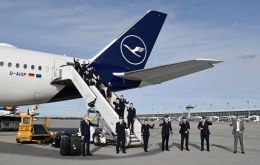
Lufthansa will on Tuesday repeat its longest-ever non-stop flight as it flies an A350 from Hamburg to Mount Pleasant Airport in the Falkland Islands, according to aviation industry website Simple Flying. The German flag carrier first flew the route in January 2021 with a flight clocking in at 15 hours and 36 minutes.
-
Friday, February 5th 2021 - 09:20 UTC
Falklands-Munich, Lufthansa completes record-breaking flight
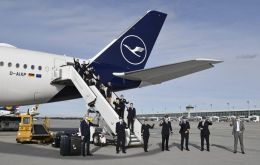
Yesterday at 1:24 pm the crew of the Lufthansa record-breaking flight received a very warm “welcome back” upon their return in Germany. After landing at Munich Airport, the Airbus A350-900 was greeted by the fire department with a water salute.
-
Tuesday, February 2nd 2021 - 09:38 UTC
Lufthansa lands in Falklands with scientists; returns to Germany on Wednesday
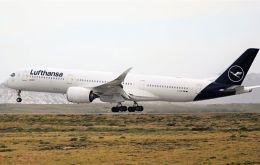
Lufthansa’s longest flight ever has landed in the Falkland Islands. The aircraft departed Hamburg at 21:23 on Sunday, landing at Mount Pleasant Complex at 09:00. The flight, which is also the longest flight to have departed Hamburg, clocked in at 15 hours and 36 minutes.
-
Monday, February 1st 2021 - 09:21 UTC
Lufthansa Airbus A350 en route to Falklands, on its longest non-stop flight
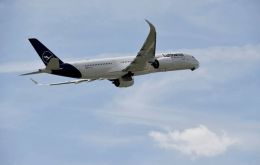
This Sunday, January 31, an Airbus A350-900 takes off on the longest non-stop flight in Lufthansa's history under flight number LH2574: 13,700 kilometers from Hamburg to the Mount Pleasant Complex in the Falkland Islands.
-
Saturday, January 23rd 2021 - 09:23 UTC
Germany denies change of policy regarding the Falklands dispute
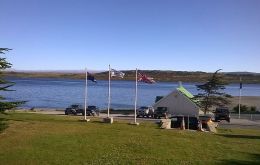
Germany said that its position on the Falkland Islands dispute has not changed, following claims by Argentina that Lufthansa's request for two flights to the Islands, in support of a polar research expedition, implied recognition of the archipelago as Argentine territory.
-
Thursday, January 21st 2021 - 00:48 UTC
Lufthansa to fly nontop to Falklands carrying German scientists
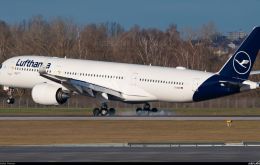
German carrier Lufthansa Wednesday issued a press release confirming plans are underway for a nonstop charter flight between Hamburg and Mount Pleasant in the Falkland Islands for scientific purposes. The airline highlighted the trip will be one of its longest nonstop stretches ever.
-
Wednesday, October 14th 2015 - 21:08 UTC
Billions of juvenile polar cod under the Arctic ice, confirmed by German marine biologists
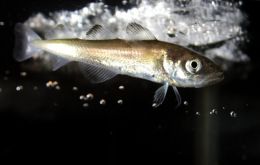
Using a new net, marine biologists from Germany's Alfred Wegener Institute have, for the first time, been able to catch polar cod directly beneath the Arctic sea ice with a trawl, allowing them to determine their large-scale distribution and origin. This information is of fundamental importance, as polar cod are a major source of food for seals, whales and seabirds in the Arctic.
